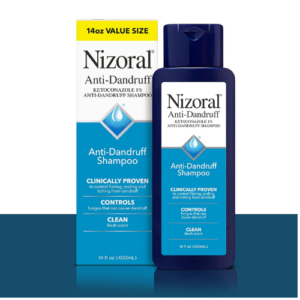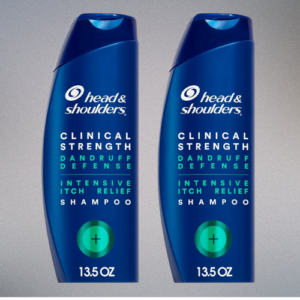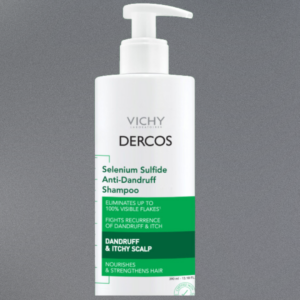In this empathetic guide, we understand the struggles of dealing with dandruff and its impact on your confidence and comfort. We offer practical, step-by-step strategies to help you prevent dandruff from returning, focusing on nurturing your scalp and maintaining healthy hair. By following these easy-to-implement tips, you can regain control over your scalp health, reduce flaking and itching, and ultimately feel more at ease in your own skin. Your journey to a flake-free, healthy scalp starts here, and we’re here to support you every step of the way.
The table of content
Identify the cause.
Identify your dandruff’s underlying cause by observing your scalp and skin condition. Notice if your scalp feels excessively dry, which could indicate dry skin as a culprit. Examine your scalp for redness or scale buildup, suggesting seborrheic dermatitis. Pay attention to any recent changes in hair products that might cause irritation or allergic reactions. If you suspect a fungal infection, look for persistent flakes that may appear oily or yellowish. Keep a journal of your observations and reactions to various hair products, as this information will be invaluable when consulting a dermatologist or healthcare professional for a tailored treatment plan.
Choose the right shampoo.
Select a gentle anti-dandruff shampoo that contains key ingredients such as zinc pyrithione, ketoconazole, or selenium sulfide. Look for products labeled specifically for dandruff, such as Head & Shoulders with zinc pyrithione or Nizoral with ketoconazole, as these can effectively combat the yeast responsible for your dandruff. Apply the shampoo to your scalp, massaging it in thoroughly, and leave it on for several minutes to allow the active ingredients to work. Rinse thoroughly and follow up with a conditioner to maintain your hair’s moisture.
Buy on Amazon Buy on Amazon Buy on Amazon
Establish a regular washing routine.
Wash your hair regularly, ideally every 2-3 days, to keep it fresh and healthy. Use a gentle shampoo that suits your hair type, focusing on the scalp where oil and dead skin cells accumulate. Rinse thoroughly to ensure no product residue remains. Adjust the washing frequency based on your scalp’s condition; if it feels oily sooner, increase the washes, but if it feels dry or itchy, consider reducing the frequency.
Moisturize your scalp.
Apply a lightweight scalp moisturizer or oil regularly to prevent dryness and flakiness. Look for products containing natural oils like coconut oil or tea tree oil; these ingredients can not only hydrate your scalp but also soothe irritation. For example, you might try a coconut oil scalp treatment, where you warm a small amount in your hands and gently massage it into your scalp for a few minutes. Alternatively, consider using a tea tree oil scalp serum, which you can apply directly to the scalp and leave on overnight for maximum benefits.
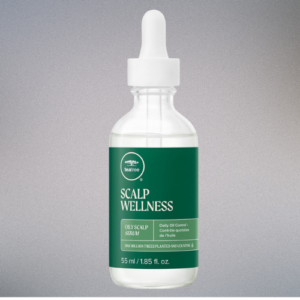
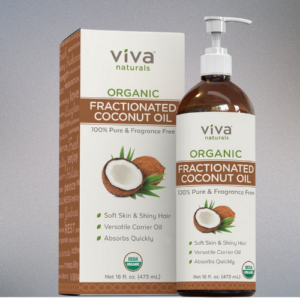
Avoid irritating products.
Choose hair products that are labeled as gentle, hypoallergenic, or sulfate-free. Read the ingredient list carefully and avoid products that include harsh chemicals like sulfates, parabens, or certain alcohols, which can strip moisture and irritate your scalp. Opt for fragrance-free formulas whenever possible, as artificial fragrances can trigger sensitivity and worsen dandruff. Prioritize natural ingredients such as aloe vera, tea tree oil, or chamomile, which can soothe your scalp and promote healthy hair.
Maintain a healthy diet.
Incorporate a balanced diet rich in vitamins and minerals to promote overall health. Focus on including zinc and B vitamins in your meals, as they play a crucial role in maintaining healthy skin and hair. Add foods like nuts, seeds, whole grains, and leafy greens to your plate for a nutrient boost. Drink plenty of water throughout the day to keep yourself hydrated, as adequate hydration directly supports scalp health and enhances the vitality of your hair.
Manage stress to prevent dandruff.
Incorporate stress management techniques into your daily routine. Engage in yoga to enhance flexibility and promote relaxation, which can significantly reduce stress levels. Practice meditation for just a few minutes each day to clear your mind and center your thoughts, helping to alleviate tension. Commit to regular exercise, whether it’s a brisk walk, jogging, or a workout session, as physical activity releases endorphins that improve your mood and help combat stress-induced dandruff.
Protect your scalp from environmental factors.
- Wear a wide-brimmed hat during sunny days to shield your scalp from harmful UV rays, which can cause sunburn and dryness. Opt for breathable materials like cotton or linen for comfort.
- Wrap a lightweight scarf around your head in cold weather to protect your scalp from harsh winds and frigid temperatures. Choose a soft fabric like cashmere or fleece for added warmth and comfort.
- Look for hats with built-in UV protection for an extra layer of defense against sun exposure. Brands that specialize in outdoor gear often offer stylish options that prioritize protection.
- Consider layering a beanie or a knitted cap when temperatures drop. This will keep your scalp insulated and prevent dryness caused by cold air. Select colors and patterns that match your winter wardrobe for a fashionable touch.
Avoid scratching your scalp.
Resist the urge to scratch your scalp, as doing so can exacerbate irritation and trigger inflammation. Keep your fingers away from your scalp, especially if you feel the itch creeping in. Instead of scratching, gently massage the area with your fingertips, using a circular motion to relieve tension without causing damage. If you find yourself reaching for your scalp, distract yourself by playing with a stress ball or engaging in another activity that keeps your hands busy.
Consult a dermatologist.
Schedule an appointment with a dermatologist if dandruff continues despite your best efforts. Discuss your symptoms thoroughly, mentioning any over-the-counter treatments you’ve tried and how long you’ve been experiencing the issue. Expect the dermatologist to evaluate your scalp and may recommend stronger medicated shampoos, such as those containing ketoconazole or selenium sulfide, which can effectively combat persistent dandruff. Follow their tailored treatment plan closely and ask about any additional lifestyle changes that could help improve your scalp health.
Long-term solutions to prevent dandruff.
In conclusion, preventing dandruff from coming back is all about consistency and care. By adopting a regular hair care routine, making thoughtful lifestyle choices, and focusing on your scalp’s health, you can effectively keep those pesky flakes at bay. Remember, a little effort goes a long way in achieving and maintaining a beautiful, flake-free scalp and vibrant hair. So, stay proactive and enjoy the confidence that comes with a healthy scalp!
Essential supplies needed.
- Anti-dandruff shampoo
- Moisturizing scalp treatment or oil
- Gentle, sulfate-free shampoo
- Conditioner
- Hairbrush or comb
- Scalp massager
- Essential oils (e.g., tea tree oil, peppermint oil)
- Sunscreen for scalp
- Nutritional supplements (e.g., omega-3 fatty acids, zinc)
- Stress management tools (e.g., meditation app, yoga mat)
- Protective headwear (e.g., hats or scarves)
Maintain a flake-free scalp.
- Choose the right shampoo: Use a gentle, anti-dandruff shampoo that contains ingredients like zinc pyrithione, ketoconazole, or selenium sulfide
- Wash your hair regularly: Keep your scalp clean by washing your hair at least 2-3 times a week to remove excess oil and flakes
- Moisturize your scalp: Apply natural oils, like coconut or tea tree oil, to keep your scalp hydrated and prevent dryness
- Limit heat styling: Reduce the use of heat styling tools, as they can dry out your scalp and exacerbate dandruff
- Maintain a healthy diet: Incorporate foods rich in omega-3 fatty acids, zinc, and B vitamins to promote scalp health
- Stay hydrated: Drink plenty of water to keep your skin and scalp hydrated
- Manage stress: Practice relaxation techniques like yoga or meditation, as stress can trigger dandruff flare-ups
- Avoid hair products with harsh chemicals: Steer clear of gels, sprays, and other products that contain alcohol or sulfates
- Exfoliate your scalp: Occasionally use a gentle scrub or exfoliating treatment to remove dead skin cells
- Consult a dermatologist: If dandruff persists, seek professional advice for tailored treatment options
Refer: 8 Easy steps to create a DIY scalp exfoliation formula
10 Home Remedies to Get Rid of Dandruff

